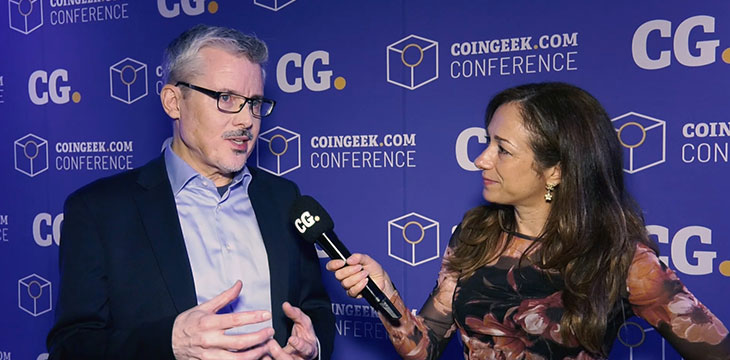|
Getting your Trinity Audio player ready...
|
Enterprise resource planning (ERP) is defined as a suite of integrated applications that can be used for collection, storage, management and interpretation of data from core business processes, essentially to streamline an organization’s information and practices. To achieve this, ERP systems need a shared database that can support the different functions of a company’s multiple business units. This is where blockchain technology comes in.
For Norwegian startup company Unisot, blockchain is a key element the industry needs today to build “a distributed database that all companies can use.” Stephan Nilsson, founder and CEO of Unisot, describes it as a “central database”—but decentralized due to the nature of blockchain.
“It’s totally decentralized, but by using one and the same database for all companies, we get away with a lot of the problems that we have today with people having different information in different companies,” he explained.
Nilsson is a solution architect, with over two decades of experience building integrations between companies. In his work as integration consultant, Nilsson said he’d been building integrations between companies and what he noticed was that they’ve been doing the same integrations—an area where blockchain tech can be utilized.
“What I see with the blockchain system, with decentralized blockchain database, we can actually use that as the communication system so we don’t need all these integrations, we just have one integration with the blockchain, where everything is secure, quick and very cheap,” he said.
Unisot is building an enterprise ERP-blockchain platform and an Open Global Business Network for supply chains. The platform was initially developed on the Bitcoin Core (BTC) chain, but Nilsson said they had to stop following the debate of block size scaling amid the rising transaction fees, which “was totally unusable for enterprise system.”
The development was revived with Bitcoin Cash, but following the November 2018 hard fork event, Unisot has elected to continue to project in the “most efficient” Bitcoin SV (BSV) network.
“We are very pragmatic, we are not closed into one blockchain system. We will go with the blockchain system that is working in our enterprise product. Currently today, the things are developing so fast here now so Bitcoin SV is today the most efficient,” Nilsson said.
If you want to learn more about all the developments happening with Bitcoin SV, come join all the world leaders in on-chain scaling at the CoinGeek Toronto conference this May. Registering takes just a few minutes, and you can save money by using Bitcoin SV via Coingate.

 02-19-2026
02-19-2026 




